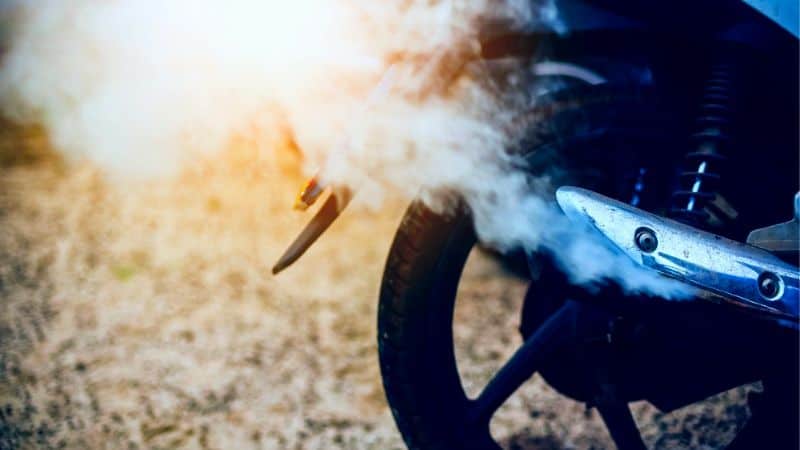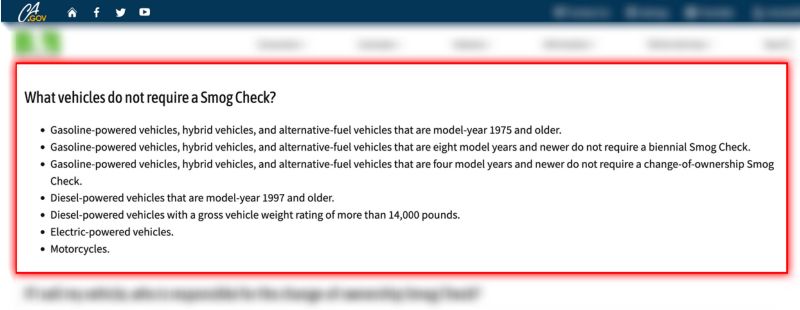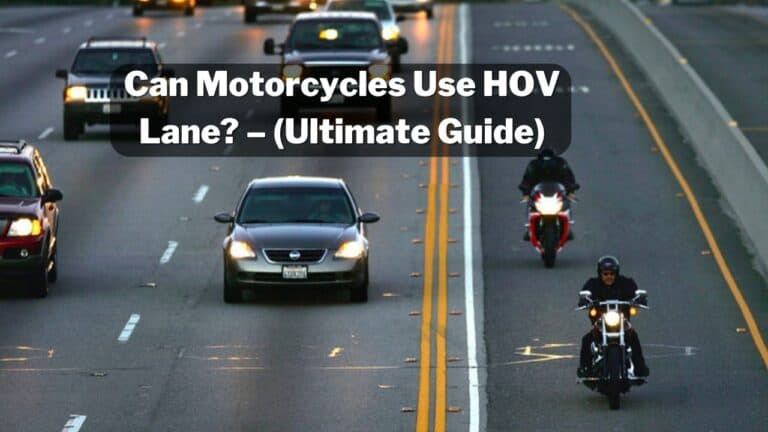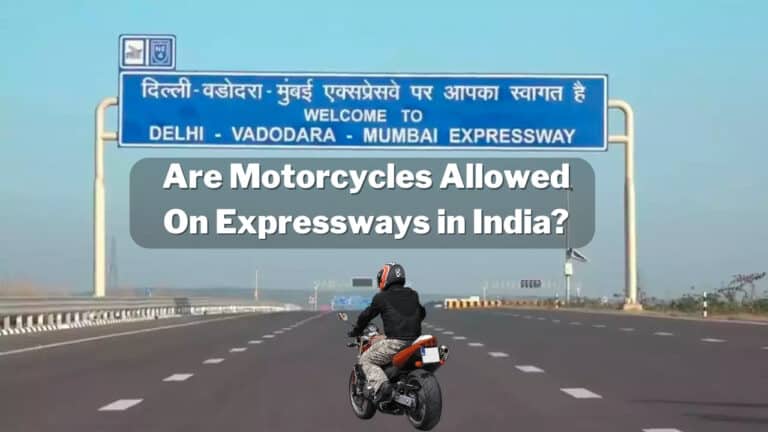Do Motorcycles Need Smog Checks? – (Everything Explained)
Global warming is the biggest threat in the 21st century, and automobile emission plays a major role. The government has passed various ordinances to reduce air pollution. That’s why cars and trucks must undergo annual emission and fitness tests.
But are motorcycles and scooters also required to go for regular emission checks? This guide will clear all your doubts about motorcycle smog checks and emission norms.
So, do motorcycles need smog checks? Unlike cars and trucks, motorcycles and scooters do not require a smog check before registration. However, the rules and regulations vary by state. In California, emissions labeling has been required on all motorcycles greater than 50cc since 1980. I advise you to read the emission law of your state.
Moreover, if your motorcycle exhaust is smoking excessively, you must diagnose and fix the issue immediately.

Table of Contents
Do Motorcycles Need Smog Checks in California?
In July 2021, the California Air Resources Board amended the Older Vehicle Emission Act. So, many motorcycle riders asked me whether these new regulations apply to only cars and trucks or motorcycles and scooters.
So, I thoroughly read the new emission rules and regulations and found that it’s only applicable to cars and trucks. Motorcycles are exempted from the California biennial smog check regulations.
I found these exemptions in the Frequently Asked Questions section of the California Smog Check Program:
Source: bar.ca.gov
- Gasoline-powered vehicles, hybrid vehicles, and alternative-fuel vehicles that are model-year 1975 and older.
- Gasoline-powered vehicles, hybrid vehicles, and alternative-fuel vehicles that are eight model years and newer do not require a biennial Smog Check.
- Gasoline-powered vehicles, hybrid vehicles, and alternative-fuel vehicles that are four model years and newer do not require a change-of-ownership Smog Check.
- Diesel-powered vehicles that are model-year 1997 and older.
- Diesel-powered vehicles with a gross vehicle weight rating of more than 14,000 pounds.
- Electric-powered vehicles.
- Motorcycles.

Do Motorcycles Need Emission Checks in Utah?
If you live in Utah and are planning to register a new motorcycle, there is no need for emission and smog checks.
However, you need motorcycle insurance and other documents to register a title suit with the Division of Motor Vehicles (DMV).
Moreover, if your motorcycle is older than 10 years, it requires inspection every year. Any model between 2013 and 2016 does not require this inspection.
Do Motorcycles Need Smog Checks in Florida?
Registering a vehicle in Florida is very easy. Former governor Jeb Bush abolished all vehicle emissions test requirements in the 1990s. So, no emissions test is required to register a vehicle in the State of Florida.
So, if you’re buying a new or used motorcycle in Florida, you can register without any smog check.
Why Are Motorcycles Exempted From Smog Checks?
In many states of the USA, motorcycles are exempted from emission checks. That doesn’t mean you can make illegal modifications that increase air and noise pollution.
Motorcycles give better gas mileage than cars, and the state government wants more people to opt for this mode of transportation for daily commutes.
This will decrease crude oil dependency and reduce air pollution. Despite very strict smog regulations in California, they’ve exempted motorcycles from emission tests.
Above that, many states made lane splitting legal for motorcycles and promoted them to use HOV/Carpool lanes.
This clearly indicates that the California government is promoting the use of motorcycles. This effort increased the number of registered motorcycles in California (Statista).
Conclusion
There is no need for smog or emission tests for registering a new motorcycle in California, Utah, Florida, and other states of the USA. However, In California, emissions labeling has been required on all motorcycles greater than 50cc since 1980.
As responsible citizens of the country, we must think about nature and avoid illegal modifications to minimize air and sound pollution.

